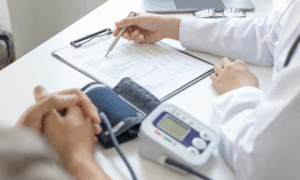Regular gynecological examination – Why should women not ignore?
Regular gynecological examination is one of the important health care measures but is often forgotten by many women due to fear, subjectivity or lack of information. However, according to obstetricians and gynecologists, regular examinations help detect early abnormalities in the reproductive organs, timely treatment and protect the ability to become a mother. In particular, gynecological examinations also help prevent cervical cancer, one of the most common cancers in women.
1. What is a regular gynecological exam?
Regular gynecological examination is the process of examining the female reproductive organs such as vulva, vagina, cervix, uterus and ovaries. When coming for examination, the doctor will perform a clinical examination combined with paraclinical examination when necessary such as vaginal fluid test, transvaginal ultrasound or abdominal ultrasound, cervical cytology test (PAP smear), HPV test, etc.
The goal of regular check-ups is to detect early infections, hormonal disorders, cysts, polyps, or precancerous lesions.
2. Why should women have regular gynecological exams?
- Early detection of gynecological infections:
Vaginitis, cervicitis or vaginal yeast infection are very common diseases. If not treated properly, the disease can recur, causing discomfort, reducing the quality of life and even affecting fertility.
- Cervical cancer screening and prevention:
Cervical cancer is a dangerous disease but can be detected early through PAP smear and HPV testing. The World Health Organization recommends that women of reproductive age, especially those aged 21–65, should undergo regular screening to control the risk.
- Detection of ovarian and uterine disorders:
Problems such as uterine fibroids, ovarian cysts or endometriosis often progress silently. Regular ultrasound helps detect and treat tumors early when they are still small.
- Ensuring reproductive health:
Regular gynecological examinations are especially important for women who are planning to become pregnant or are undergoing infertility treatment. Doctors can evaluate reproductive function, advise on care, nutritional supplements, and treat conditions that interfere with conception.
- Improve sex life:
Problems such as pain during intercourse, vaginal dryness, hormonal disorders or prolonged infections all affect the psychology and quality of marital relations. Proper treatment helps women feel more confident and comfortable.
3. How often should I have a gynecological exam?
- Women who have had sex: Check at least every 6-12 months, combined with cervical cancer screening as recommended by your doctor.
- Single people: You still need to see a doctor if you have unusual symptoms such as increased vaginal discharge, unpleasant odor, itching or lower abdominal pain.
- Pregnant women: It is necessary to see a doctor as scheduled to ensure the health of mother and fetus.
- Menopausal women: Still should have gynecological exams to screen for cancer and monitor endocrine health.
In addition to regular check-ups, women should see a doctor immediately if they experience any unusual symptoms: vaginal discharge that changes color or has a strange odor, itching and burning in the genital area, painful urination, unusual bleeding, pain during intercourse, or prolonged lower abdominal pain.
4. What should I prepare for a gynecological examination?
- Do not have sex 1–2 days before the examination.
- Do not douche or use strong cleaning solutions before the examination day.
- You should go for a check-up 3-5 days after your period for accurate results.
- Bring previous medical examination results (if any)
5. Advice for women in gynecological health care
- Clean the private area properly, do not overuse cleaning solutions
- Wear loose underwear and change it often.
- Safe sex, use protection to avoid sexually transmitted diseases
- Maintain a healthy lifestyle: get enough sleep, limit stress, supplement vitamins and minerals
- Regular gynecological examination, do not wait until severe symptoms appear
Regular gynecological examination is not only a simple health check-up but also an important step in protecting fertility, preventing serious diseases and ensuring quality of life. Proactively seeking early examination, choosing a reputable medical facility and taking proper care of your health will help women feel more confident in their journey of self-care.







